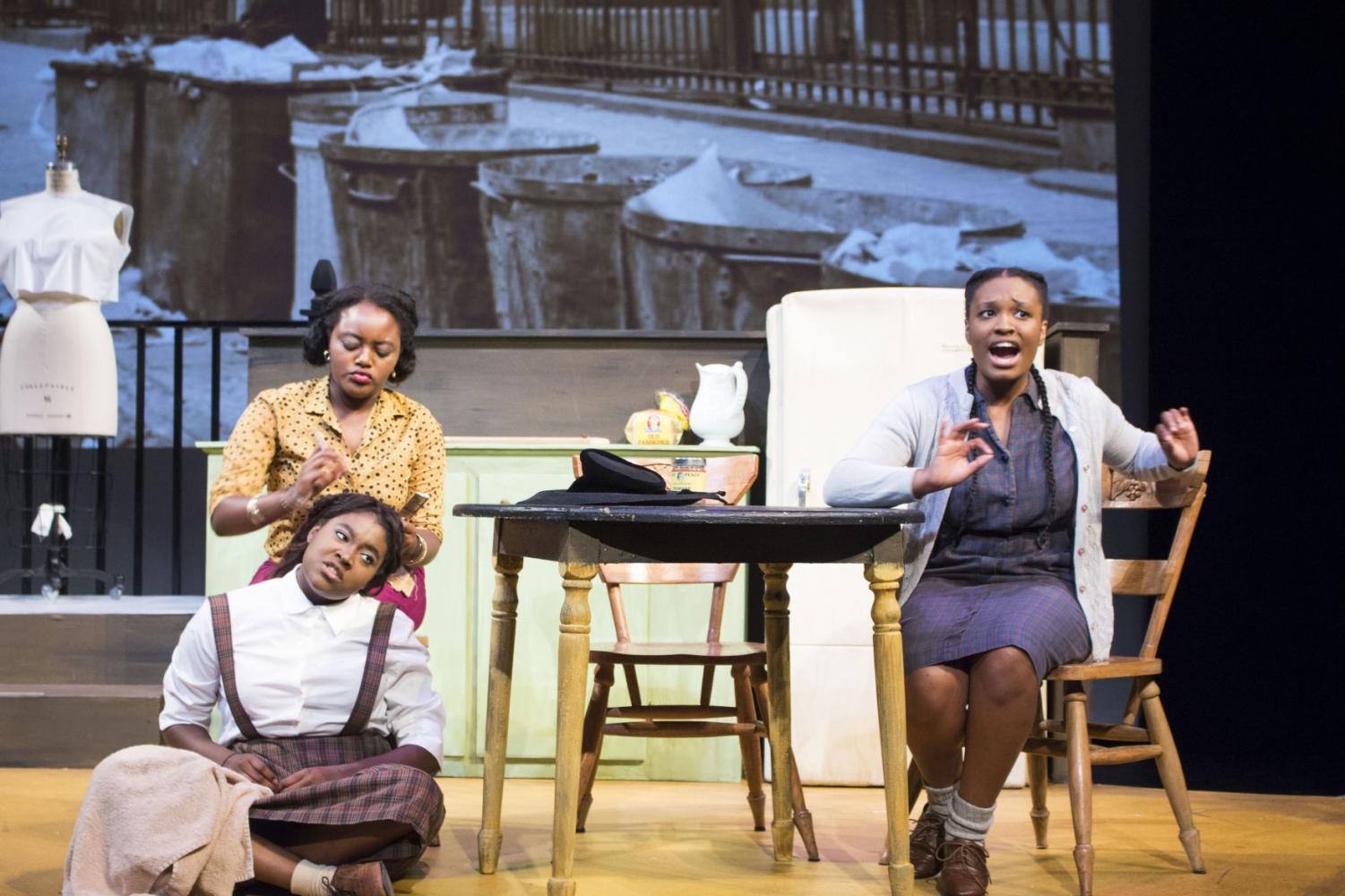Behind the curtain: How GS theatre highlights African-American culture
September 22, 2016
Moving from a rural town to an urban city can be a challenging experience for some. Relocating like this can also entail meeting people different from you, who have different ideas about life.
It is into the 1950s Brooklyn, New York landscape that African-American teenager Ernestine Crump and her family enter in the play “Crumbs from the Table of Joy”.
Georgia Southern Theatre and Performance premiered “Crumbs from the Table of Joy” at the GS Black Box Theatre on Sept. 21. The play chronicles not only how the Crump family deals with moving, but also how the family navigates the channels of race and religion.
The play highlights real-life religious leader Father Divine and his impact on the Crump family.
Father Divine was a minister who healed people, particularly via mail.
Mical Whitaker, local actor, director and GS professor emeritus, explained why he chose to direct this particular play by Pulitzer-Prize winning playwright Lynn Nottage.
“I’ve done [directed] her play, Intimate Apparel, in 2009 on this stage. I’m returning to her because I believe she represents the best in the current crop of African-American playwrights.
She places a small family against a rich background of American history,” Whitaker said.
Ernestine Crump is played by Tushawn Dozier, a junior journalism and communications major.
Many times, Crump acts as a narrator in the production by helping people navigate her life.
“She [Ernestine] is taking the audience back on her life with her father and her sister after her mother passed away. She’s trying to navigate being a black girl from the country in Florida moving up north to New York,” Dozier said.
Tyair Blackman, a freshman theater major, plays Ernestine and Ermine Crump’s father, Godfrey Crump. Crump’s wife passes away while the family is living in Pensacola, Florida.
“He [Godfrey] was searching for a coping mechanism, and he found it via religion, specifically Father Divine, the founder of the International Peace Missions. He moves up to New York with his two daughters in order to follow Father Divine more devoutly,” Blackman said.
As Crump attempts to adjust to his new life in New York, he does so to the detriment of his daughters.
“His purpose in the play is to show what happens when you restrain free thinking. He shows what happens to a parent when they don’t follow their gut and they trust someone else to raise their kids from them,” Blackman added.
The last character to appear in “Crumbs from the Table of Joy” is Gerte Schulte, played by Kathryn M. Burrell, a junior theater major. Schulte is the only white actor of the five actors in the play.
“The character herself becomes kind of a eye-opener to other issues going on. It’s 1950, and she’s a young German woman who’s just come out of Germany after World War Two,” Burrell said.
The director and Burrell decided to interpret Gerte as being Jewish, even though the play only subtly hints at it.
“It highlights a lot of the racial tensions that go on, because even the family are a little racist to her…whether it’s because she’s German or white,” Burrell added.
Whitaker explained why it is important to have a play like “Crumbs from the Table of Joy” performed at GS.
“What a university education does so beautifully is it exposes us to other ways of thinking, other ways of doing. I believe theater is one of the wonderful purveyors of that,” Whitaker said.
All showings of “Crumbs from the Table of Joy” will start at 7:30 p.m. There will be a matinee performance of it on Sept. 25 at 2:00 p.m. The play will not be performed on Sept. 26.
Tickets for the play cost $12 for faculty, staff and community members. Student and youth tickets only cost $6.








